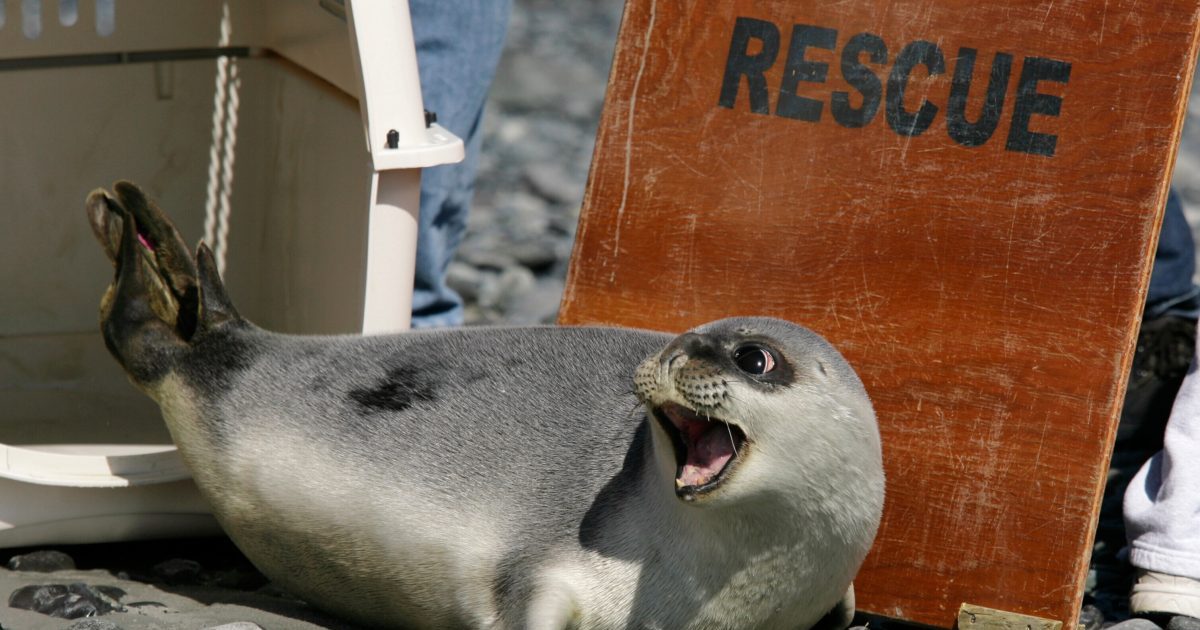**Arctic Seals Near Extinction as Climate Change Takes Toll, While More Than Half of Bird Species Decline Globally**
Arctic seals are being pushed closer to extinction by climate change, and more than half of bird species around the world are declining due to deforestation and agricultural expansion, according to the latest annual assessment from the International Union for Conservation of Nature (IUCN).
**A Glimmer of Hope: Green Sea Turtles**
One bright spot highlighted in the IUCN’s newly released Red List of Threatened Species is the green sea turtle, which has seen a substantial recovery thanks to decades of dedicated conservation efforts. While many animals face increasing risk of disappearing forever, the updated list shows that species can rebound from the brink with persistent effort.
“Hope and concern go hand in hand in this work,” Rima Jabado, deputy chair of the IUCN Species Survival Commission, told The Associated Press. She added by email, “The same persistence that brought back the green sea turtle can be mirrored in small, everyday actions—supporting sustainable choices, backing conservation initiatives, and urging leaders to follow through on their environmental promises.”
**The Scope and Importance of the IUCN Red List**
The Red List is updated annually by teams of scientists who assess data on species from around the globe. Andrew Farnsworth, a visiting scientist at the Cornell Lab of Ornithology who studies bird migration but was not involved with the IUCN report, emphasized the vast importance of the work.
“Every time one is done and every time there’s revision, there’s more information, and there’s more ability to answer questions on species, some of which are still largely a mystery to researchers,” Farnsworth said.
**Sea Ice Loss Threatens Arctic Marine Mammals**
All marine mammals native to the Arctic—seals, whales, and polar bears—rely heavily on sea ice for their habitat. The rapid loss of sea ice caused by human-driven climate change places them all at significant risk, according to Kit Kovacs, co-chair of IUCN’s Species Survival Commission Pinniped Specialist Group, which focuses on seals.
The latest report elevates three seal species—the harp, hooded, and bearded seals—to a higher risk category, reflecting their increasing threat of extinction. Kovacs noted that melting glaciers and sea ice not only destroy seal habitats but also contribute to more extreme weather events that increasingly impact human populations worldwide.
“Acting to help seals is acting to help humanity when it comes to climate change,” Kovacs said.
**Global Decline of Bird Populations**
The report also draws attention to significant bird declines in regions such as Madagascar, West Africa, and Central America. Species including Schlegel’s asity, the black-casqued hornbill, and the tail-bobbing northern nightingale-wren have been moved to ‘near-threatened’ status.
Overall, approximately 61%—or nearly three-fifths—of bird species worldwide are experiencing population declines. Deforestation of tropical forests stands as a major threat, compounded by agricultural expansion and intensification, competition from invasive species, and climate change.
Stuart Butchart, chief scientist at BirdLife International, described the situation as a “depressing litany of threats,” emphasizing, “The fact that 61% of the world’s birds are declining is an alarm bell that we can’t afford to ignore.”
**Looking Ahead: The Importance of Global Cooperation**
The upcoming U.N. climate summit, scheduled for November in Belem, Brazil, will focus on the Amazon and the critical value of tropical forests for both animals and humans. Despite this, Farnsworth expressed caution regarding global commitments.
“I would like to think things like birds are nonpartisan, and you can find common ground,” he said. “But it’s not easy.”
**The Long Road to Recovery for Green Sea Turtles**
The green sea turtle’s rebound is an encouraging example of how human actions—such as legal protections and conservation programs—can successfully protect endangered species. However, Justin Perrault, vice president of research at Loggerhead Marinelife Center in Florida, points out that conservation efforts often require decades before bearing fruit.
Nicolas Pilcher, executive director of the Marine Research Foundation, stresses that while green sea turtles are recovering in many areas, other species like hawksbills and leatherbacks are still struggling. He also notes that some habitats continue to suffer due to climate change and erosion, particularly in poorer communities that often receive less conservation funding.
Despite these challenges, Pilcher remains hopeful: “In the places where they have recovered, it’s a great story of, actually, we can do something about this. We can. We can make a difference.”
—
The IUCN Red List serves as a crucial reminder of the ongoing threats to biodiversity worldwide, but also as a testament to the power of committed conservation efforts to turn the tide for endangered species.
https://fox5sandiego.com/news/arctic-seals-more-than-half-of-bird-species-on-latest-threatened-list/
